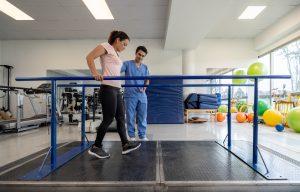Understanding Short-Term Care At Home And How It Works

People often assume that in-home care is only for the elderly or people with chronic illnesses or disabilities. However, shorter forms of care are available for those who merely require it to recuperate after a surgery or other ailments. Remember that short-term care is intended to assist your loved one in regaining confidence in self-control.
The following information on short-term care will assist you in putting together the best rehabilitation plan for your loved one.
The Basics of Short-Term Care
Short-term care is a broad term that refers to a variety of medical and non-medical services designed to help people get back on their feet after an accident, illness, or surgery. A medical event will have a varied impact on each individual. Some people recover quickly, while others may need more help to regain their independence.
Short-term care’s success is determined by a person’s pre-existing medical conditions, past level of fitness, and whether or not they have cognitive impairments. In the event of a medical emergency, any long-term care planning for a loved one should include an emphasis on maintaining and improving health.
Long-Term vs. Short-Term Care
The fundamental distinction between long-term and short-term care is the period of stay and the care goals. Your loved one may require short-term care for mild cases and conditions. However, it may be necessary to receive long-term care if they don’t improve as projected.
People who require long-term care have chronic medical issues that need continual medical attention and assistance. Long-term care is typically thought of as a place of habitation, such as assisted living or a nursing home.
Different Types of Short-Term Care
Because short-term care is so diverse, each type of care has its own set of advantages and disadvantages. Some of these constraints are due to insurance regulations, but in some circumstances, cost becomes the deciding factor when it comes to making a change.
Due to the seriousness of an illness or injury, many families may require more than one sort of short-term care. Other services are frequently required to supplement treatment and keep someone safe.
If your loved one has been receiving private-duty assistance for a long time, the cost may exceed the cost of assisted living. Assisted living as a long-term care alternative might make more sense at that point.
Skilled Nursing Rehab
For individuals who qualify, skilled nursing rehab can be a beneficial advantage. It can mean the difference between a full recovery and further deterioration.
Medicare mandates a minimum of three nights in a hospital for rehab to be covered. You will not be eligible if you or a loved one is not in the hospital for that amount of time. When you consider these criteria, you may realize that Medicare does not want to pay the high expense of intense rehab for those who could benefit from less expensive in-home services like home health.
The rehab includes the following:
- Several times a week, physical, occupational, speech, and respiratory therapy are used.
- Wound treatment, vitals, blood sugar tests, catheter care, and other services are available 24 hours a day, seven days a week.
- Patients are assisted in getting dressed, bathing, going to the restroom, and walking 24 hours a day.
- Patients have medical assistance like x-rays and other diagnostic procedures like blood draws.
The rehabilitation process is never simple, which is why it’s critical to choose a supportive subacute rehab setting that will improve your physical and emotional well-being while also increasing your freedom.
Conclusion
The goal of skilled nursing rehab is to return a patient to their home, where they can continue their recovery on their own or with the help of other supportive services. Home health is the cornerstone of short-term care for those who don’t qualify for skilled nursing rehab or who have completed rehab and require ongoing assistance.
You can turn to Morristown hospital for short-term care to achieve complete rehabilitation. We are a premier nursing center ideally situated to serve as a bridge between hospital and home. Check out our services and amenities to know more about how we can help you recover.